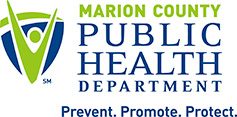Marion County Public Health Department Issues School Drinking Water Assessment
Voluntary Testing Provides Opportunity to Identify, Remediate Issues
The Marion County Public Health Department conducted a comprehensive survey of Marion County schools as part of an on-going effort to ensure safe drinking water in public and private schools. The voluntary assessment led by the health department included extensive testing of thousands of water fountains and other potable water supplies within area schools.
“The safety of our children always comes first,” said Virginia A. Caine, M.D., Director of the Marion County Public Health Department. “I am very pleased that Marion County schools took the initiative in this voluntary testing for lead in drinking water. After remediation efforts, all schools have successfully passed retesting, with these locations and water sources either in compliance with EPA standards at the time or taken out of service.”
The testing was led by Karla Johnson, Administrator of the health department’s Healthy Homes, Environmental Consumer Management, and Senior Care Department. Johnson provided oversight of a team that included her department, as well as the Epidemiology department and the Public Health Laboratory.
“Over the course of 16 months, 8,842 samples were taken from 297 schools,” said Dana Reed Wise, Bureau Chief of Environmental Health at the Marion County Public Health Department. “Testing sites included areas accessible to children, including water fountains, bathroom sinks, kitchen prep sinks, clinics and teacher lounges.”
According to Johnson, affected schools were encouraged to retest their water and were also given recommendations for cost-effective solutions:
- Clean debris from accessible screens of faucets and fountains (aerators) frequently. Clean and inspect periodically.
- Use only cold water for food and beverage preparation in kitchens.
- Take fixtures (fountains, faucets, sinks, etc.) out of service until repairs can be made.
- Flush the pipes by letting the water run for a few minutes before use. This will bring in fresh water that has not been standing in the pipes.
- Provide bottled water.
“We must remain committed to protecting children against lead beyond the classroom,” added Johnson. “In 2017, 10.5 percent (8,728) of Marion County children ages 0 to 5 years were tested for lead poisoning. Less than three percent (246) of those children had elevated levels that required clinical assessment and/or case management, which is less than the national average of four percent. The majority of lead poisoning occurs in the home, commonly from homes built before 1978 that used lead paint.”
The Centers for Disease Control and Prevention recommends that children age 0 to 5 get tested if lead poisoning is suspected. If parents are interested in getting their child screened, testing is available at their local doctor’s office or health center. Free testing is available at the Marion County Public Health Department by calling 317-221-2155.
For a copy of the report, please click on the image below.
Report on Lead in School Drinking Water




